Too Many Games: Soccer Overload
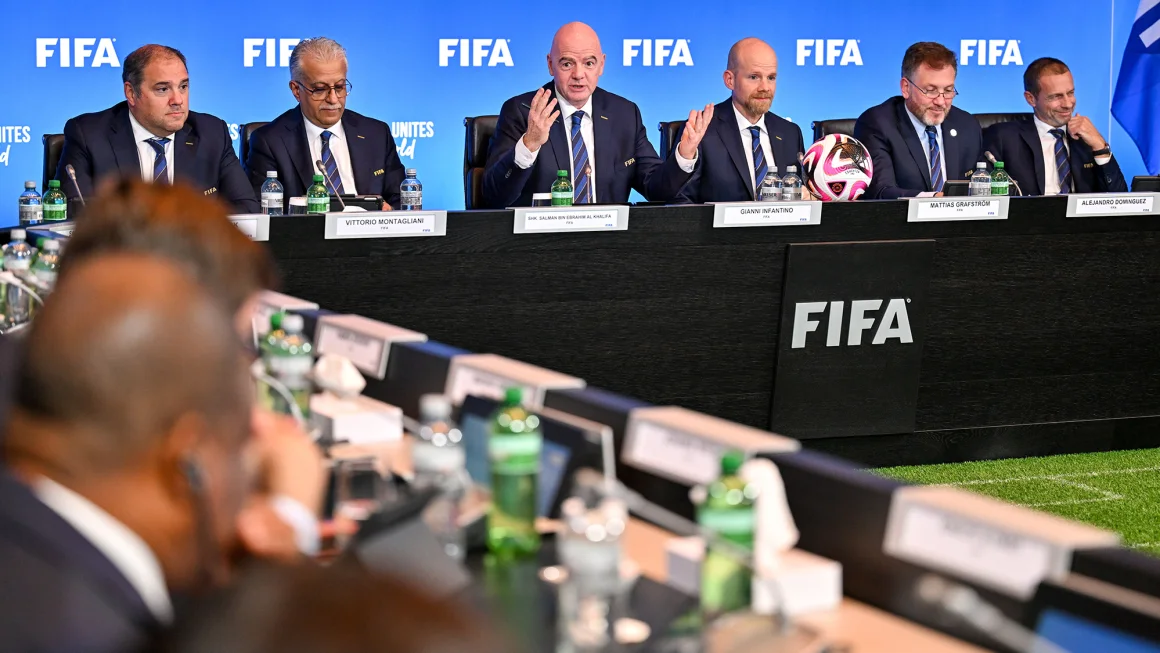
Pressure is mounting on FIFA as players and leagues push back against an overloaded 2024/2025 soccer calendar.
In the global soccer landscape, resistance is mounting against FIFA’s relentless push to expand the match calendar, culminating in a showdown over the proposed expansion of the Club World Cup in 2025. Players, leagues, and fans alike are increasingly voicing their frustrations as the game is overloaded with matches, leading to burnout, injuries, and diminished fan engagement.
Тhe global players’ union FIFPro, along with the European Leagues association—which represents 39 divisions including the Premier League, Serie A, and La Liga—filed a groundbreaking legal complaint against FIFA. They accuse the governing body of abusing its role as both tournament organizer and regulator, pushing for more games at the expense of player welfare.
This complaint is the latest chapter in an ongoing battle between FIFA and the key stakeholders in world soccer. At the heart of the issue is FIFA’s controversial decision to expand the Club World Cup to 32 teams, which is set to take place in the United States from June 15 to July 13, 2025. The decision was made unilaterally, adding to an already jam-packed fixture list that includes expansions in the Champions League, Europa League, and the introduction of new competitions like the UEFA Nations League.
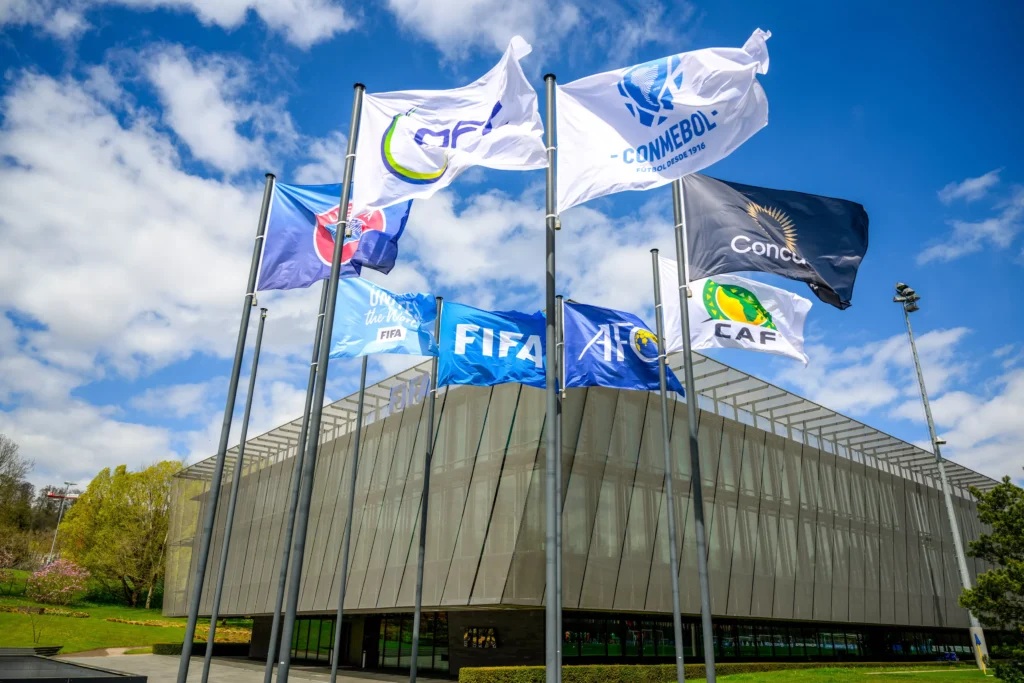 FIFA Headquarters. Photo — FIFA.
FIFA Headquarters. Photo — FIFA.
The Legal Battle: A United European Front
FIFPro and the European Leagues took their concerns to the European Commission, filing an unprecedented antitrust complaint against FIFA. According to Alexander Bielefeld, FIFPro’s director of policy, this move challenges the legality of FIFA’s unilateral decision-making regarding the international match calendar. The complaint underscores growing concerns about how the relentless push for more tournaments is pushing players to their limits, both physically and mentally. The calendar is oversaturated, leaving top players with little to no time for recovery between seasons.
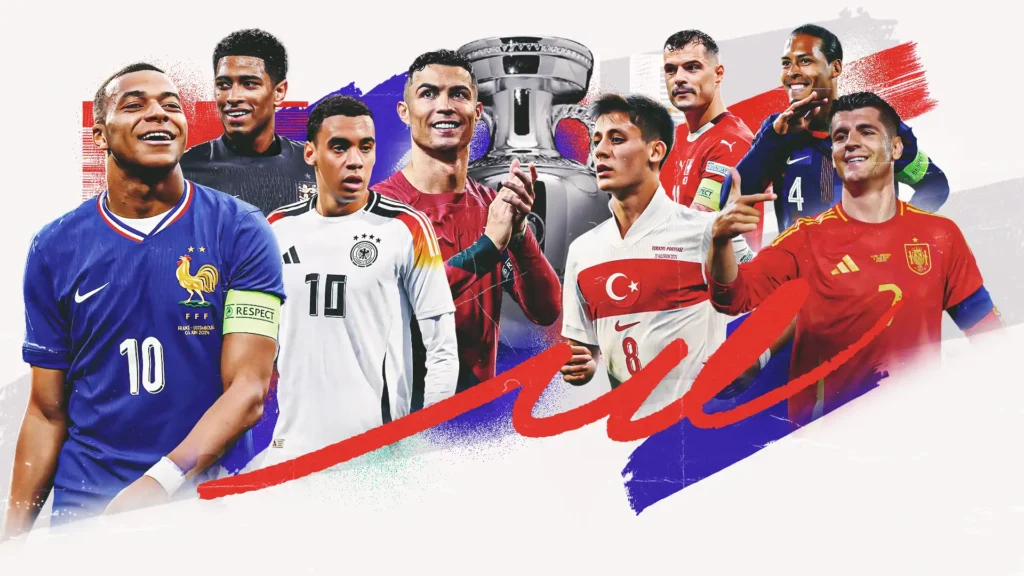 European 2024 Players. Image by goal.com.
European 2024 Players. Image by goal.com.
Javier Tebas, president of La Liga, described the complaint as “one of the most important days in football,” emphasizing the need for reform in how soccer’s governing institutions operate. Richard Masters, Premier League chief executive, echoed this, warning that the sport has reached a “tipping point,” with stakeholders united in saying “enough is enough.”
The Premier League, Serie A, and other major European leagues have refrained from increasing their domestic schedules in recent years. The primary pressure has come from FIFA and UEFA, whose constant drive to expand competitions has left clubs and players overstretched. As Luigi De Siervo, CEO of Serie A, pointed out, «While UEFA at least consulted with stakeholders, FIFA imposed its new format without any meaningful discussion.»
Too Many Games, Too Little Recovery
The problem of overloading soccer’s calendar has been brewing for years. Former Barcelona and Spain defender Gerard Piqué recently criticized FIFA and UEFA for their relentless expansion of competitions, suggesting that leagues should reduce the number of teams and matches to ease the burden on players. Piqué, who retired in 2022, knows firsthand the toll that such congested schedules take. «Players are saying, ‘we are getting injured.’ There are games every three days, and there’s no time to rest,» he said.
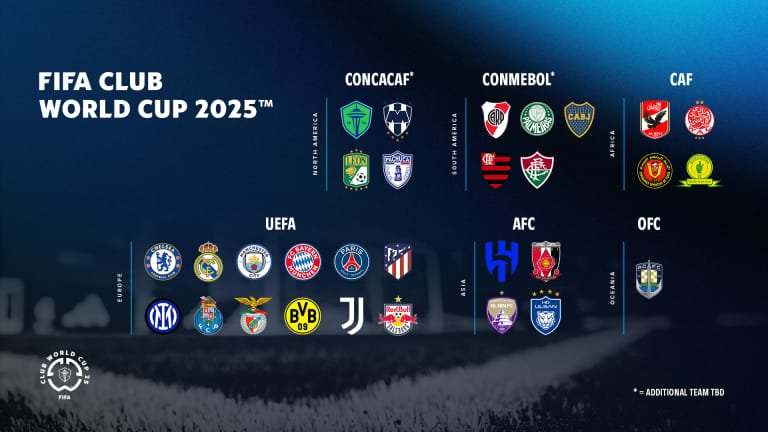 Club World Cup 2025 qualified teams. Image by Seattle Sounders.
Club World Cup 2025 qualified teams. Image by Seattle Sounders.
The expansion of the Club World Cup, combined with the already growing number of matches in other tournaments, has pushed players like Manchester City’s Rodri to their breaking point. The Spanish midfielder recently warned that players are “close” to going on strike. The growing frustration among players, who are increasingly vocal about their exhaustion, reflects the broader concern that the game’s governing bodies are prioritizing commercial interests over player welfare.
Rodri’s comments resonate across Europe, where coaches like Pep Guardiola and Carlo Ancelotti have also raised alarms about the health risks posed by such a heavy schedule. «The match calendar is far too congested,» Guardiola said, calling for reforms before players are forced to take drastic action.
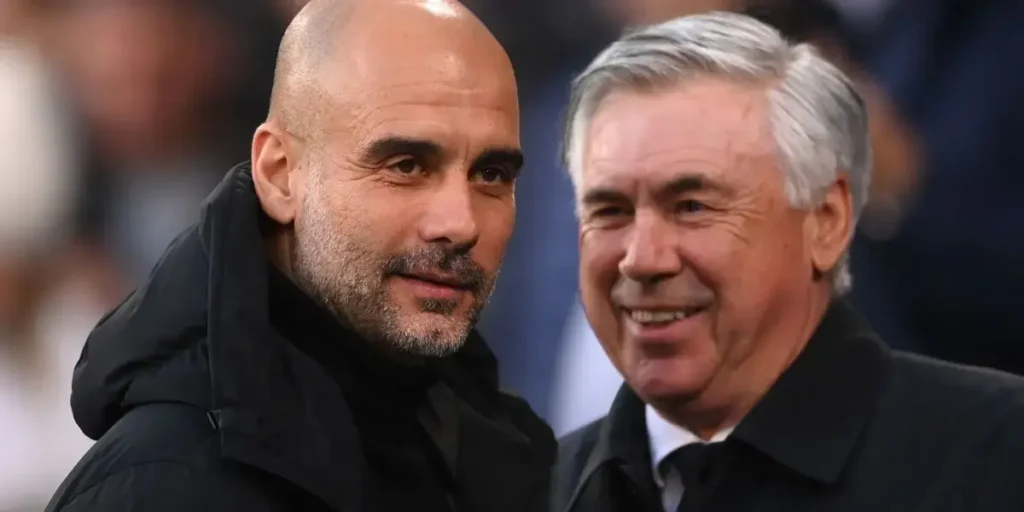 Pep Gaurdiola and Carlo Ancelotti. Photo by Telecom Asia.
Pep Gaurdiola and Carlo Ancelotti. Photo by Telecom Asia.
FIFA’s Priorities: Money Over Players?
FIFA’s recent moves have shown a clear prioritization of revenue over the health and well-being of players. The introduction of the expanded Club World Cup, aimed at showcasing the world’s top clubs on a grand stage, is, according to FIFA President Gianni Infantino, a move to create «more opportunities for teams to play at the highest level.» However, critics argue that this is simply about filling FIFA’s coffers by forcing clubs into more high-stakes competitions.
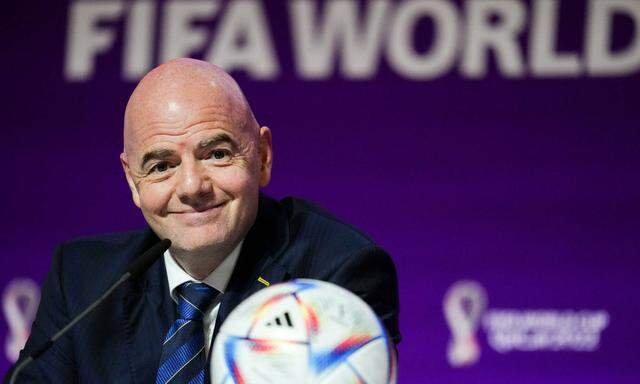 FIFA President Gianni Infantino. Photo by IMAGO.
FIFA President Gianni Infantino. Photo by IMAGO.
Despite the protests from players and leagues, FIFA has pressed ahead with its plans. The organization is banking on the expanded Club World Cup to draw global audiences, but the early signs suggest a growing disinterest among fans, who are becoming fatigued by the sheer number of games. Broadcasters have struggled to sell rights to the oversaturated market, showing that FIFA may have overestimated the public’s appetite for more soccer.
The oversaturation isn’t just a European issue. Similar complaints have arisen globally, with new competitions like the Leagues Cup in North America and expanded domestic tournaments further congesting the soccer calendar. Players worldwide are being forced to play in more matches with less recovery time, leading to higher injury rates and diminishing the quality of the sport.
What’s Next: Will Players Strike?
The growing opposition from leagues, players, and even broadcasters suggests that FIFA’s relentless push for more games may soon face serious resistance. The antitrust complaint filed with the European Commission could set a legal precedent that forces FIFA to reconsider its approach. But legal action alone may not be enough to change the course of global soccer governance.
 Rodri gets injured. Photo Manchester City, BBC.
Rodri gets injured. Photo Manchester City, BBC.
It may take bold actions from players like Rodri and managers like Ancelotti to truly force change. Strike action, which has been hinted at by several top players, could be the next step if FIFA refuses to listen to the growing chorus of discontent.
Fans, too, may play a crucial role. If supporters show less interest in oversaturated tournaments like the 2025 Club World Cup, it could send a clear message to FIFA: fans and players want fewer, better-quality games, not a relentless schedule that puts the sport’s future at risk. Whether it’s a players’ strike or dwindling fan engagement, the message to soccer’s governing bodies is the same: enough is enough.
Main photo: FIFA Meeting in Zurich in October 2024. Photo by Harold Cunningham/FIFA/Getty Images.
